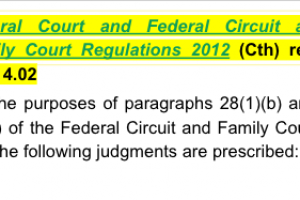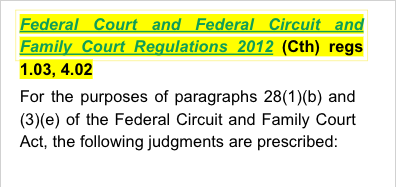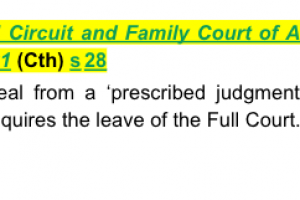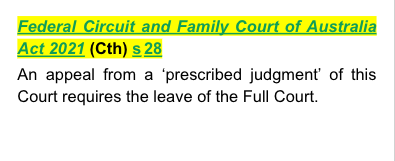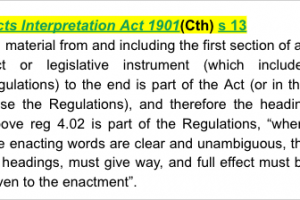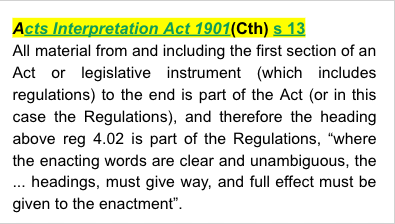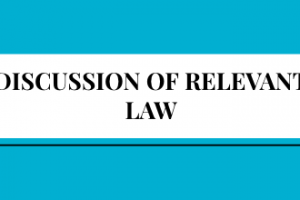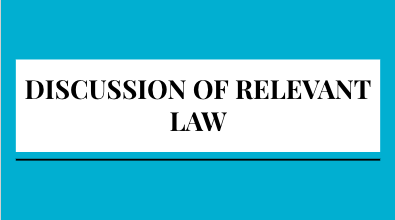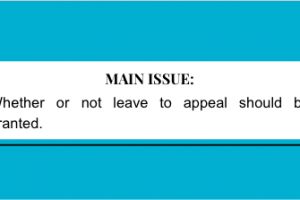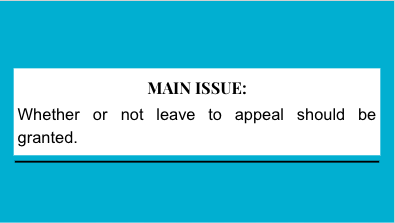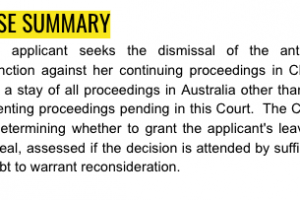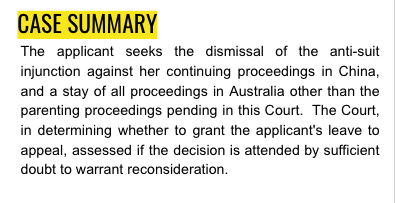- · 4845 friends
Wife Opposes Anti-Suit Injunction Against Proceedings in China

Beng & Kwok [2022] FedCFamC1A 117 (26 July 2022)
The applicant seeks the dismissal of the anti-suit injunction against her continuing proceedings in China, and a stay of all proceedings in Australia other than the parenting proceedings pending in this Court. The Court, in determining whether to grant the applicant's leave to appeal, assessed if the decision is attended by sufficient doubt to warrant reconsideration.


Facts:
The wife and husband married in China in 2011 and separated in Australia in 2019. The wife has lived in Australia since 2013 and the husband has lived in Australia since 2018, although he was a frequent visitor to Australia in the period 2013 to 2018. There is one child of the marriage who is 10 years of age and he has lived most of his life in Australia. The parties and the child currently live in Australia.
In 2018 and 2019, the wife and husband entered into two agreements that deal with some of their property. There is a dispute between the parties about the circumstances leading to the agreements with the husband alleging that he entered into the agreements as a consequence of threats made to him by the wife. By contrast, the wife contends that the agreements were the husband’s idea. In 2019, the wife sold certain property in Australia without the knowledge or consent of the husband.
On 8 March 2021, the husband commenced proceedings in this Court initially in relation to property settlement and subsequently by amendment to include parenting matters. On 8 March 2021, an ex parte order was made restraining the wife from dealing with the proceeds of sale of property sold by her in 2019.
On 11 March 2021, the wife appeared in this Court and an order was made directing her to provide disclosure and permitting the release of some funds to her. A further order was made by consent on 23 March 2021 in relation to the funds that were the subject of the restraining order.
On 2 July 2021, the wife commenced proceedings in China. Those proceedings relate to divorce, parenting and property proceedings (including reliance on the 2018 and 2019 agreements) and child support. On 20 August 2021, the wife filed a Response in the Australian proceedings seeking a stay of the proceedings or alternatively an interim parenting order and release of further funds.
On 6 December 2021, in the absence of any expert evidence on the relevant law in China, an order was made, until further order, restraining the wife from continuing parenting proceedings in China but otherwise dismissing the husband’s anti-suit injunction.
The parties subsequently obtained evidence from a single expert in Chinese law that included the following evidence: (1) A Chinese court has jurisdiction in relation to the parties as they are Chinese nationals; (2) A Chinese court has jurisdiction in respect of joint spousal assets in China and Australia; (3) The 2018 Agreement and the 2019 Agreement (“the Agreements”) entered into by the parties are binding; and (4) A Chinese court will not recognise Orders made by the Australian court.
The primary judge dismissed the wife's application for a stay of proceedings commenced by the husband in this Court (relating to divorce, parenting and property settlement proceedings) and granted the husband’s application for an anti-suit injunction against the wife in relation to proceedings commenced by the wife in the People’s Republic of China (relating to divorce, parenting, property settlement, enforcement of two agreements entered into between the parties in 2018 and 2019 and child support). If granted leave to appeal, the wife would seek to challenge the judgment on the grounds that the primary judge failed to take into account certain matters and placed too much weight on other matters.

Issue:
Whether or not leave to appeal should be granted.

Applicable law:
Acts Interpretation Act 1901(Cth) s 13 - provides that all material from and including the first section of an Act or legislative instrument (which includes regulations) to the end is part of the Act (or in this case the Regulations), and therefore the heading above reg 4.02 is part of the Regulations, “where the enacting words are clear and unambiguous, the ... headings, must give way, and full effect must be given to the enactment”.

Federal Circuit and Family Court of Australia Act 2021 (Cth) s 28 - provides that an appeal from a ‘prescribed judgment’ of this Court requires the leave of the Full Court.

Federal Court and Federal Circuit and Family Court Regulations 2012 (Cth) regs 1.03, 4.02 - provides that for the purposes of paragraphs 28(1)(b) and (3)(e) of the Federal Circuit and Family Court Act, the following judgments are prescribed: (a) an interlocutory decree (other than a decree in relation to a child welfare matter).

Licul v Corney (1976) 180 CLR 213; [1976] HCA 6 - provides that the question as to whether an order is interlocutory or final is determined by applying the test: “Does the judgment or order, as made, finally dispose of the rights of the parties?”.
Medlow & Medlow (2016) FLC 93-692; [2016] FamCAFC 34 - provides that leave to appeal will generally be granted only where the “decision is attended by sufficient doubt to warrant it being reconsidered by the Full Court and whether substantial injustice would result if leave were refused, supposing the decision to be wrong”.
Voth v Manildra Flour Mills Pty Limited (1990) 171 CLR 538; [1990] HCA 55 - provides that a court will be a clearly inappropriate forum if the continuation of proceedings will be oppressive i.e. seriously and unfairly burdensome, prejudicial or damaging, or vexatious i.e. productive of serious and unjustified trouble and harassment.
Analysis:
The wife contends that the primary judge did not take into account the 2018 and 2019 agreements, which are binding under Chinese law, “to the effect that in the event of a dispute ... that dispute would be heard exclusively in the Chinese jurisdiction”. However, the primary judge relevantly found that courts in both China and Australia have jurisdiction to determine the proceedings and neither party contended otherwise; that orders made in China are unlikely to be enforceable in Australia and orders made in Australia are unenforceable in China; and that courts in both Australia and China can provide a complete resolution to the controversy involving the parties as to divorce, parenting and property settlement and the applicant has already engaged in the child support process in Australia.
The primary judge did not make a finding that the husband could not afford to litigate in China, rather it was noted that the husband made that claim and as such it was a factor to consider. The primary judge noted at [91] “the consequences that may flow if a party does not comply with their obligation of disclosure”.
Further, the primary judge noted that the Australian court can appoint a single expert to value property outside Australia and can hear and resolve factual issues in relation to the ownership of assets wherever they are located. The primary judge also noted the ability of the Australian court to make orders in personam such as to affect the property (indirectly) of the parties or either of them wherever it is located
Conclusion:
Leave to appeal is refused. The wife shall pay the husband's costs of and incidental to the appeal fixed in the sum of $7,000 within 28 days from the amount held on trust by Luminous Legal on behalf of the parties with such sum to be included as part of the applicant’s entitlement to property as agreed or by judgment of this Court.


